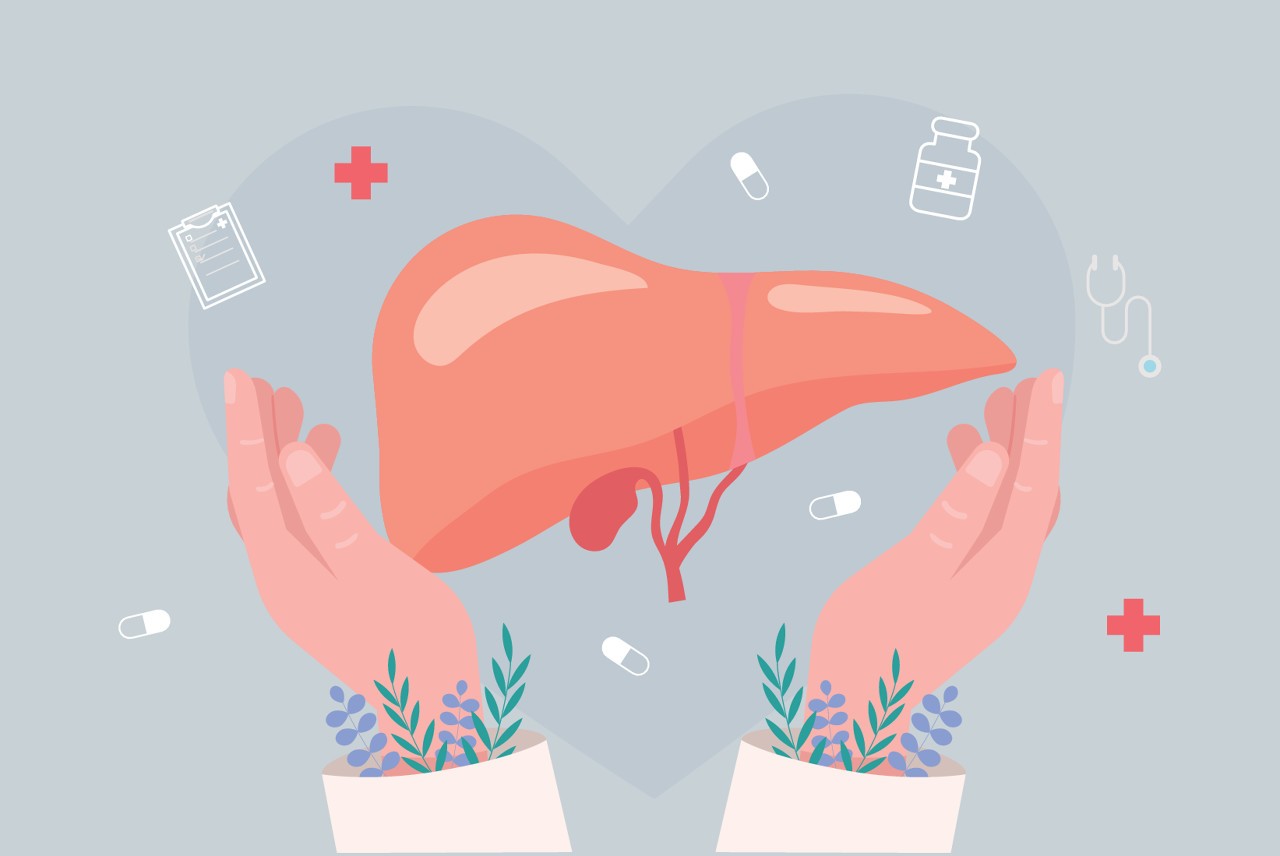[Take healthy home] Scientifically prevent hepatitis and have a healthy liver
Author:Shenyang hygiene Time:2022.08.31



Hepatitis is a collective term for liver inflammation caused by bacteria, viruses, parasites, alcohol, drugs, chemicals, and autoimmune factors. According to the pathogenic factors, it can be divided into viral hepatitis, medicinal hepatitis, alcohol hepatitis, fatty hepatitis, and autoimmune hepatitis. The good group of viral hepatitis depends on different types of hepatitis viruses. The crowd is generally susceptible or susceptible to the virus. Alcoholic hepatitis and fatty hepatitis due to drinking are more common in Western countries, and the incidence in my country has also risen in recent years. Autoimmune hepatitis is common in women, mostly at the age of 40. The occurrence of drug -based hepatitis, mostly from a variety of Chinese and Western drugs and health categories, can lead to hepatitis, and its incidence has increased year by year.

1. Classification of hepatitis
Viral hepatitis can be divided into hepatitis A, hepatitis B, hepatitis C, hepatitis C, hepatitis, and pentaeitis according to different infection virus. According to the length of the disease, it can be divided into acute hepatitis and chronic hepatitis. The general course of chronic hepatitis is more than half a year.
2. Will hepatitis be contagious? How did it spread?
The hepatitis A and pentaliac-type hepatitis is highly contagious. It can be transmitted through the digestive tract through the dung-mouth channels. Most of them are caused by eating foods and water contaminated by viruses. Type B, C, and T -type viral hepatitis are mainly transmitted through the intestinal channels such as blood and body fluids. Other non -viral hepatitis is not contagious.

What are the clinical manifestations of hepatitis?
Hepatitis may have no symptoms of digestive systems in the early stage of hepatitis, such as nausea, loss of appetite, abdominal distension, diarrhea, or constipation. Especially acute hepatitis often has obvious aversion to oil. Due to large liver enlargement, the typical symptoms of hepatitis in the right upper abdomen can occur. Patients with skin diseases are capable of liver disease. Scleum yellow dyeing and urine yellow.
Chronic hepatitis can see spider moles on the neck, front chest, back, upper arm and other parts. The skin is red with the skin, and it fades after pressurizing. It is called the liver palm. Patients with alcoholic hepatitis can also see alcoholic faces, leachy nose, etc.

Patients with hepatitis of autoimmune can sometimes appear rash. When the coagulation function is abnormal, it can severely cause the gastric mucosa erosion and bleeding, and the upper abdomen pain, black stool or vomiting blood can occur. The nervous system is weak, burnout, and mentally sluggish, and peripheral neuropathy may be numb.
Patients with alcoholic hepatitis may have memory loss and tremor. Those with severe hepatitis or alcohol may have blurred consciousness or even sleepy, and coma.
Fourth, can hepatitis be "cured"?
Among the viral hepatitis, acute hepatitis A and other acute hepatitis A except those who die from severe hepatitis, the rest can be cured. Hepatitis B is mostly cured if it does not convert to chronic hepatitis.
Although hepatitis C is mainly chronic hepatitis, there are currently special drugs, and most patients can cure.
Ding hepatitis cannot develop alone, and it needs to be accompanied by hepatitis B, which is difficult to cure.
Alcoholic hepatitis and non -alcoholic fatty hepatitis, if there is no obvious fibrosis, can be cured through strict control of living habits and combined with standardized drug treatment.
Some types of autoimmune hepatitis cannot be cured and will evolve to cirrhosis. Other types can be cured by standardized treatment.
After patients with drug -induced hepatitis, liver injury will stop and cure.

5. What should I pay attention to in daily life in patients with hepatitis?
1. Pay attention to rest. Crippy rest should be restrained during the illness to reduce exercise.
2. Pay attention to diet hygiene to avoid various infections. Diet should be based on digestible light foods such as millet porridge and oatmeal, while ensuring energy and moisture intake. Eat less fishy food, spicy food and cold drinks, etc., should also be banned.
3. During the illness, you should follow the doctor's order. Do not use the drug blindly and aggravate the burden on the liver, avoid drinking, and avoid overwork.

4. Some types of viral hepatitis can be transmitted through sexual contact pathway, and sexual life increases the burden on the body and aggravate the burden on the liver. Therefore, it is not recommended that patients with hepatitis in the same room. But take good safety measures, and there is no sense of fatigue after the same room. When the burden of the liver is worse, you can live.
5. Chronic hepatitis must follow the doctor's order and regularly go to the hospital for monitoring and follow -up.
6. How to prevent viral hepatitis?
1. First of all, the source of infection must be managed. Due to the transmission of digestive tract A and type A viral hepatitis, it isolates to isolate patients with acute phase to reduce the risk of transmission. Nursing staff should pay attention to personal hygiene to prevent the disease from entering the mouth.
2. Patients with hepatitis B, buty, and C do not need to beolate, but to timely antiviral therapy to reduce the level of virus and reduce the risk of transmission. Strictly screen blood donors to avoid dissection of menstrual blood. Cut off the transmission path, use disposable syringes to strictly disinfect medical devices, and prevent medical transmission pathway.
3. Disinfection of the patient's excrement, blood and body fluids. Do a good job in personal hygiene, strengthening feces, and water management to prevent hepatitis A and penta.
4. Protect the susceptible population and avoid contact with patients with hepatitis.

5. Newborn and children perform immunization of hepatitis B vaccine and hepatitis A vaccine. Encourage adults, especially high -risk people to vaccinate hepatitis B vaccine and hepatitis A vaccine. my country has developed liver vaccine and has been listed. It is recommended that patients with liver disease, pregnant women, and elderly people have conditions for vaccination.
6. There are no special nursing requirements for patients with hepatitis caused by other causes.The prevention of non -viral hepatitis should control drinking and avoid a large amount of drinking.Keep weight, control overweight and obesity.The regular movement helps to control weight, increase insulin sensitivity, and is conducive to the prevention of fatty liver, diabetes and cardiovascular and cerebrovascular diseases.Avoid the use of medicine at will to reduce the risk of medicinal hepatitis.Author: Xu Zhihui
Source: Shenyang Hospital of Traditional Chinese Medicine
- END -
Sign up first!Yaoming Kangde Public Welfare Forum: Special Session of Muscle Atrophic Side Cable and neuromusculus Disease Theme

EditOn June 25, when the Frozen World Day arrived, Yaoming Kant will host the lett...
Hainan has a total of 1507 positives in this round of epidemic. The latest notice: a total of 250 high -risk areas, the situation of the epidemic situation is still more complicated

On August 8, Hainan Province held a press conference on preventing and controlling...